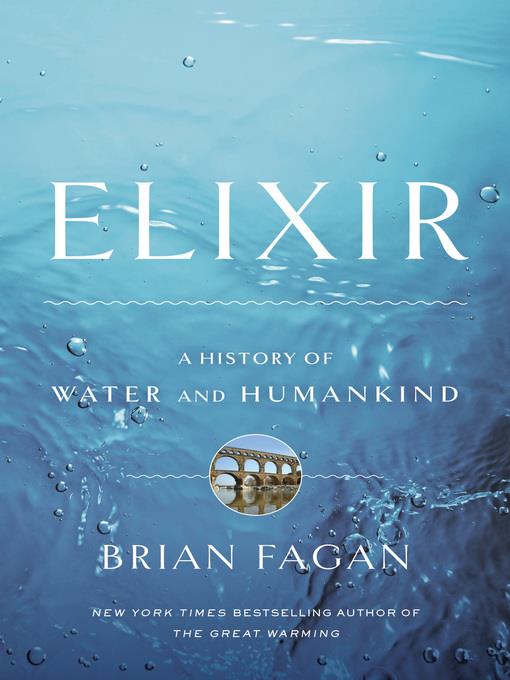
Elixir
A History of Water and Humankind
- اطلاعات
- نقد و بررسی
- دیدگاه کاربران
نقد و بررسی

February 21, 2011
Five thousand years of rising and falling civilizations flow through Fagan's sweeping survey of man's ability to harness water. From the stirrings of agricultural settlements in the Euphrates Valley to the canny manipulation that sent the Owens River's flow to a tiny California town called Los Angeles at the start of the 20th century, Fagan (The Great Warming), an archeologist, digs down into our relationship to water sources, pointing out that "water is capricious and powerful, far more masterful than the humans and animals that depend on it." However, this survey veers unevenly, offering vivid descriptions of the hazards of channeling water in prehistoric northern Iraq, of water distribution in traditional Balinese governance structures, of Middle Eastern irrigation engineering that becomes mired in measurements and dimensions. Fagan prompts an appreciation of water's centrality to civilization and of human ingenuity, but his topic is so broad and his treatment so dry that his conclusion—a call for a profound realignment of an increasingly urban world with its dwindling water supplies—lacks the impact it deserves.

May 15, 2011
Anthropologist Fagan (Cro-Magnon: How the Ice Age Gave Birth to the First Modern Humans, 2010, etc.) spins a tale of water, water everywhere—water that is damn hard to get at, and getting harder to find every day.
Humans cannot live without the stuff, of course. Yet, writes the author, "[o]f all the resources that we rely on for survival in today's world, water is the least appreciated and certainly the most misunderstood." It has not always been so. Fagan serves up anecdotes and historical episodes showing how pre-industrial people, or at least people wiser than we, properly appreciated water, from the San hunters of the Kalahari, who see the whole world as a sometimes grudging source of the substance, to John Wesley Powell's efforts to create political divisions in the American West not based on surveyors' straight lines but on natural watersheds. Politics is important to Fagan's story, for much of human history hinges on control of water. The author examines the famed Wittfogel hypothesis of anthropological renown, which keyed the development of political institutions to bureaucracies surrounding water in places such as Mesopotamia. However, the control of water is not necessarily coercive—and there the story turns to lessons for our own time, a scramble for control on the part of private concerns wishing to monetize what has long been held a public good, which will require of us "long-term thinking ... decisive political leadership and...a reordering of financial priorities." If that seems improbable, so do some of the engineering feats that Fagan recounts—even if it seems that, over time, we've gotten worse at managing this essential resource.
Long and discursive, but a rewarding survey of water's role in history and contemporary politics alike.
(COPYRIGHT (2011) KIRKUS REVIEWS/NIELSEN BUSINESS MEDIA, INC. ALL RIGHTS RESERVED.)

June 15, 2011
Fagan (emeritus, anthropology, Univ. of California, Santa Barbara; The Great Warming) traces humankind's relationship to water through history. He delves beyond water's life-sustaining properties to explore humans' ritualistic connection to water and the necessity of controlling water in both drought and flood-prone areas. The focus is on technology, ranging from simple furrows to more elaborate aqueducts, and on the correlation between the success of these water-controlling techniques and the civilizations associated with them. Fagan proposes three stages in the evolution of our relationship to water. In the remote past, access to water was unreliable; water was often scarce and therefore sacred. From about 2000 years ago through the Industrial Revolution, water was viewed as a commodity to be exploited. The current era views water as a finite resource that needs to be managed accordingly. VERDICT Recommended reading for anyone with an interest in the history of humans' relationship to water and for science buffs.--Diana Hartle, Univ. of Georgia Science Lib., Athens
Copyright 2011 Library Journal, LLC Used with permission.




دیدگاه کاربران